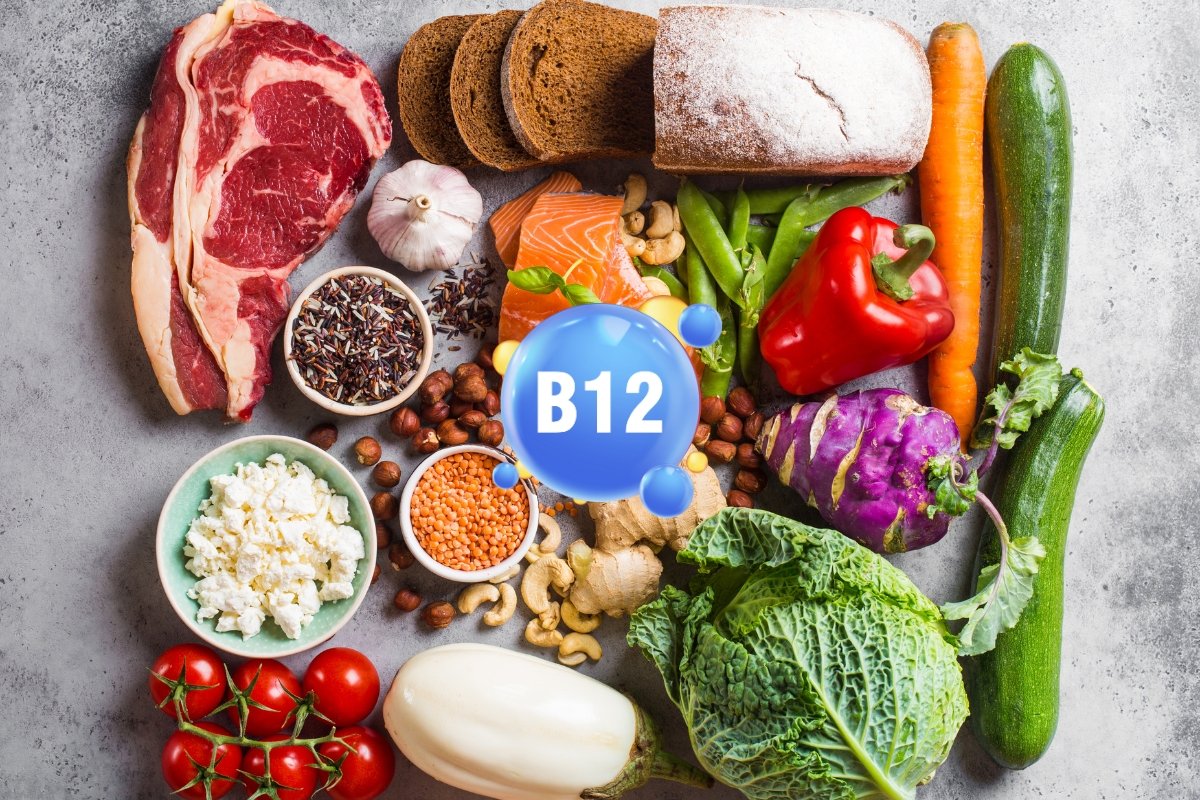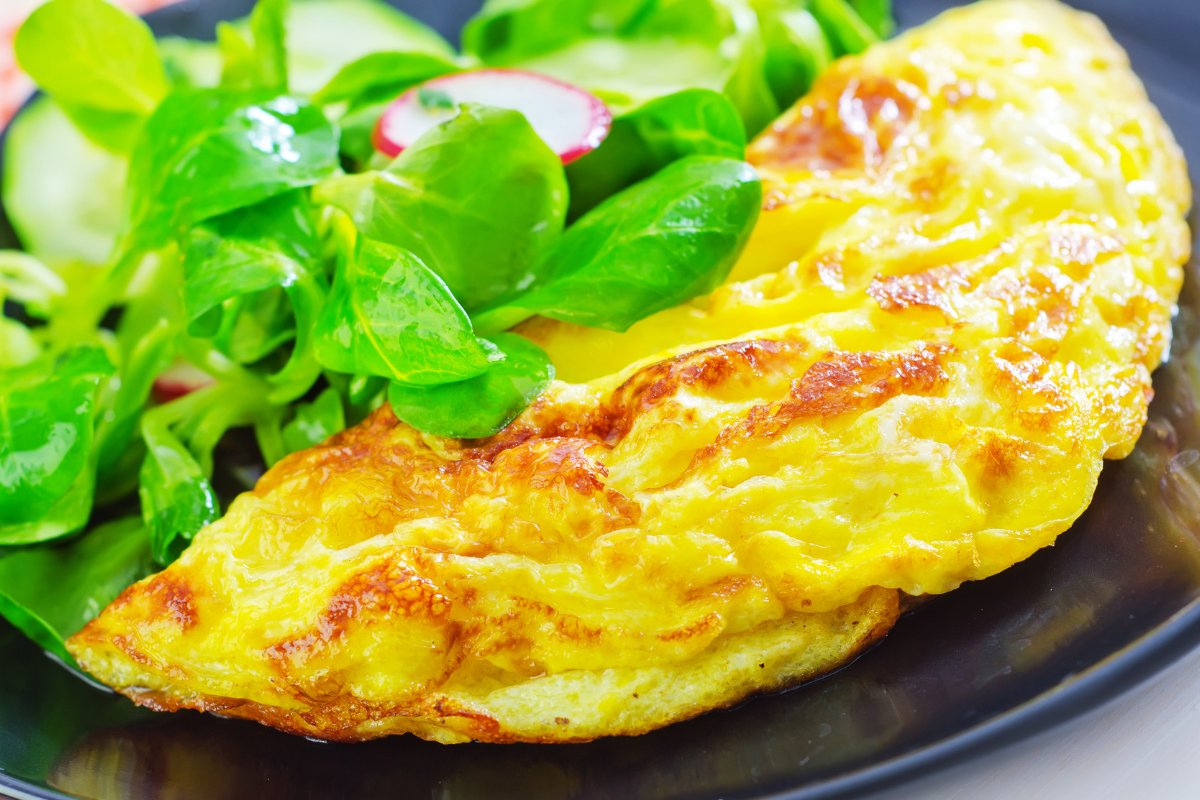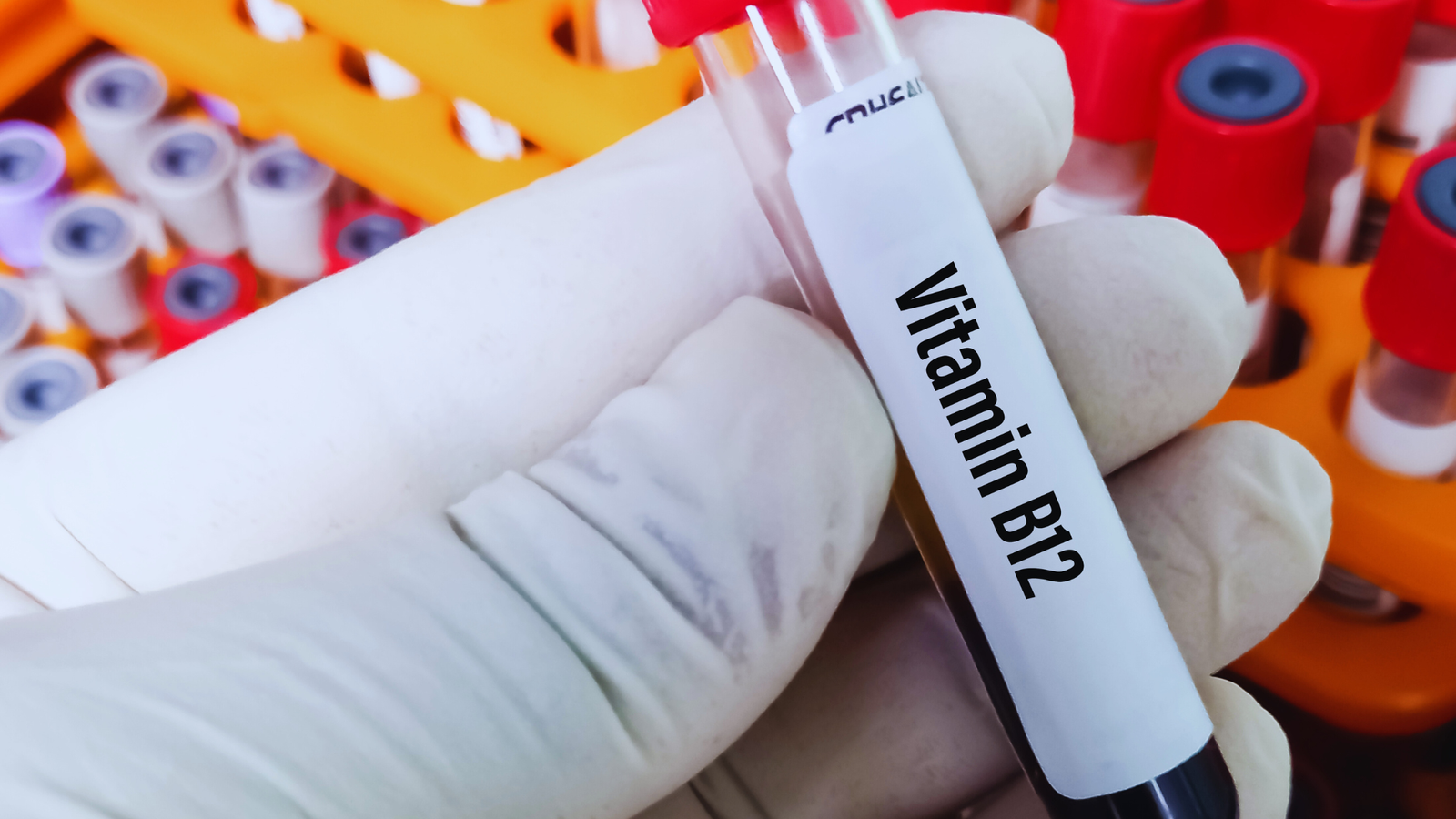Vitamin B12, a superstar nutrient often referred to as cobalamin, plays a vital role in keeping our bodies running smoothly.
It’s essential for maintaining healthy nerve and blood cells, supporting brain function, and even aiding in DNA synthesis. Unfortunately, our bodies can’t produce B12 on their own, so we rely on dietary sources to meet our daily needs.
Here we will explore the world of Vitamin B12, its functions, identifying risk factors for deficiency, and showcasing a delicious array of B12-rich foods to incorporate into your meals.
Get ready to unlock the potential of this essential vitamin and experience vibrant health from the inside out!
Understanding Vitamin B12
Vitamin B12 is a multifaceted player in our internal orchestra. Here’s a closer look at its key functions:
- Red Blood Cell Formation: B12 is a crucial component in the production of red blood cells, which carry oxygen throughout the body. Deficiency can lead to anemia, causing fatigue, weakness, and shortness of breath.
- Neurological Health: B12 is instrumental in maintaining healthy nerve function. It helps in the production of myelin, a protective sheath that surrounds nerve fibers, and ensures proper nerve impulse transmission. B12 deficiency can manifest as tingling, numbness, and even balance problems.
- DNA Synthesis: This vitamin plays a vital role in DNA replication, the process by which our cells create copies of themselves. It ensures the proper division and growth of cells.
Risk Factors for Vitamin B12 Deficiency
Several factors can increase your risk of B12 deficiency. Here are some to be aware of:
- Age: As we age, our stomach produces less gastric acid, which is needed for optimal B12 absorption.
- Diet: Strict vegetarian and vegan diets may be low in B12, as it’s primarily found in animal products.
- Medical Conditions: Certain medical conditions like pernicious anemia, Crohn’s disease, and celiac disease can hinder B12 absorption.
- Medications: Some medications, such as metformin for diabetes or proton pump inhibitors for heartburn, can interfere with B12 absorption.
Consequences of B12 Deficiency
Left untreated, B12 deficiency can lead to a cascade of negative effects on your health, including:
- Anemia: Reduced red blood cell production due to B12 deficiency can lead to anemia, causing fatigue, weakness, and shortness of breath.
- Neurological Disorders: B12 deficiency can damage the nervous system, leading to tingling, numbness, muscle weakness, and even cognitive decline.
- Fatigue: A hallmark symptom of B12 deficiency is persistent fatigue, making it difficult to carry out daily activities.
Top 10 Vitamin B12-Rich Foods
Now that we understand the significance of B12, let’s explore the delicious world of foods brimming with this essential nutrient! Here’s our curated list of the top 10 B12 powerhouses:
1. Beef Liver (3.4 mcg per 3 oz serving): This superfood tops the chart, offering a whopping dose of B12 alongside iron and other essential nutrients.
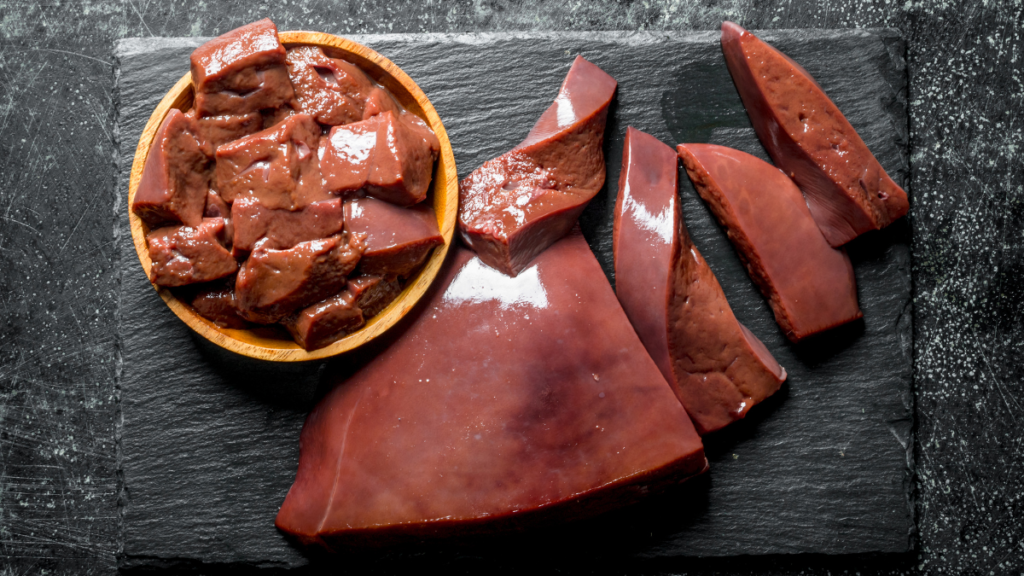
2. Shellfish (Clams – 15 mcg per 3 oz serving): Dive into a world of B12 with delectable shellfish options like clams, mussels, oysters, and even shrimp.
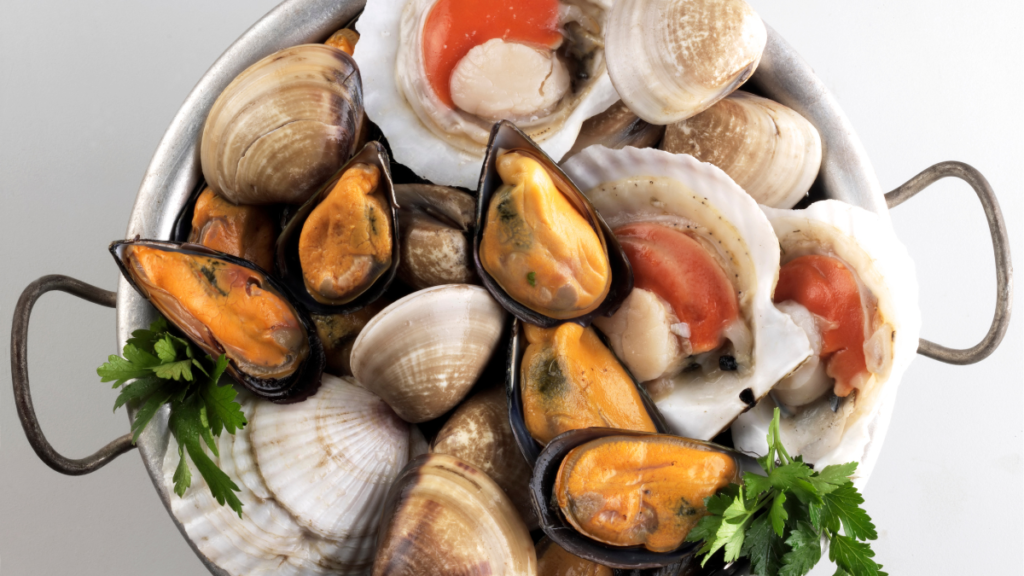
3. Sardines (3.2 mcg per 3 oz serving): These tiny fish pack a powerful B12 punch, alongside omega-3 fatty acids beneficial for heart health.
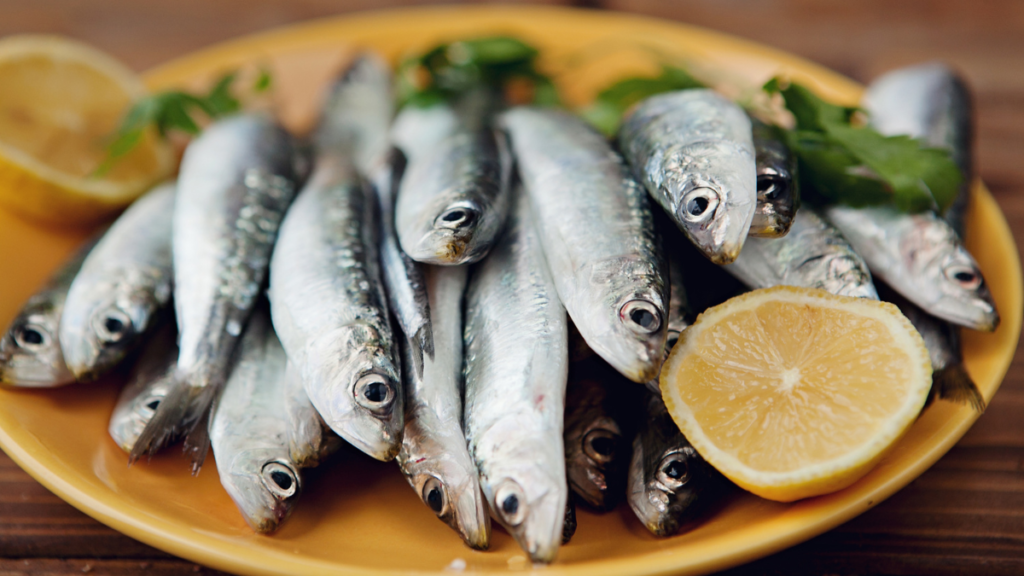
4. Fortified Nutritional Yeast (2.4 mcg per ¼ cup serving): Sprinkle this deactivated yeast onto popcorn, pasta, or salads for a cheesy, B12-rich boost.
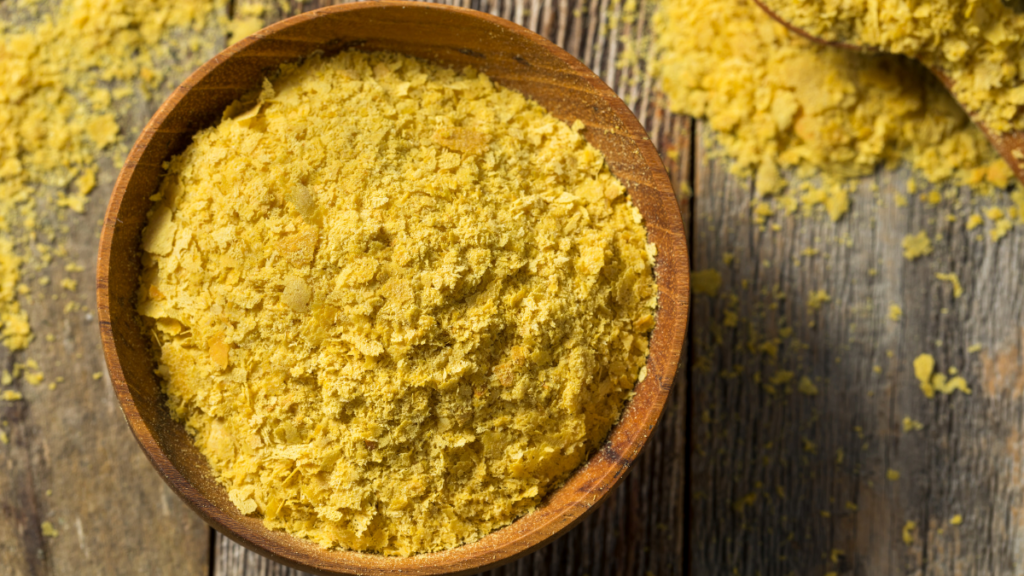
5. Salmon (4.5 mcg per 3 oz serving): This popular fish is not only a B12 champion but also an excellent source of healthy fats and protein.

6. Eggs (1.5 mcg per large egg): A complete protein source with a decent amount of B12, eggs make for a versatile and delicious breakfast option.
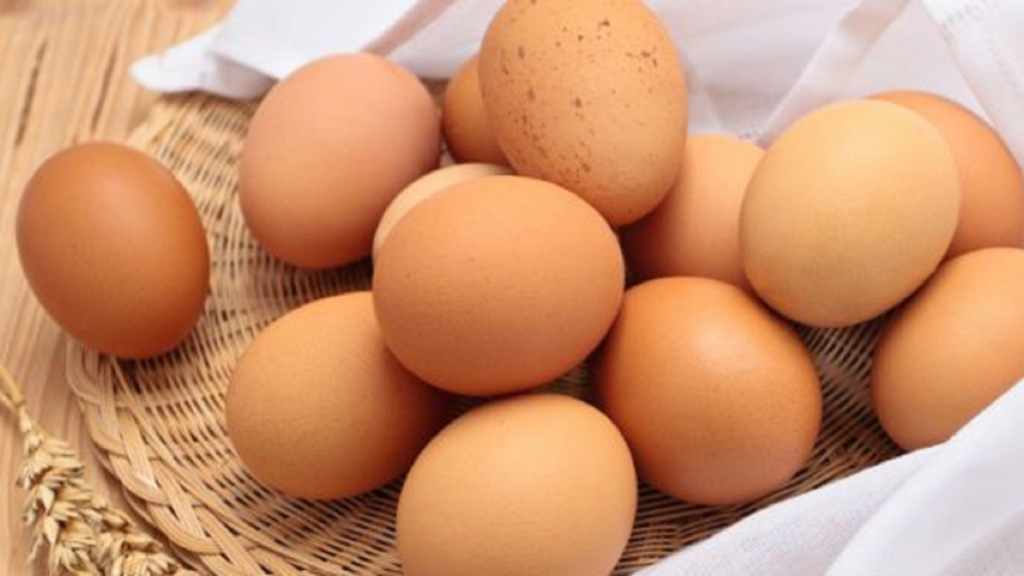
7. Fortified Cereals (2.6 mcg per 1 cup serving): Start your day right with a bowl of fortified cereal enriched with B12 and other essential vitamins and minerals.
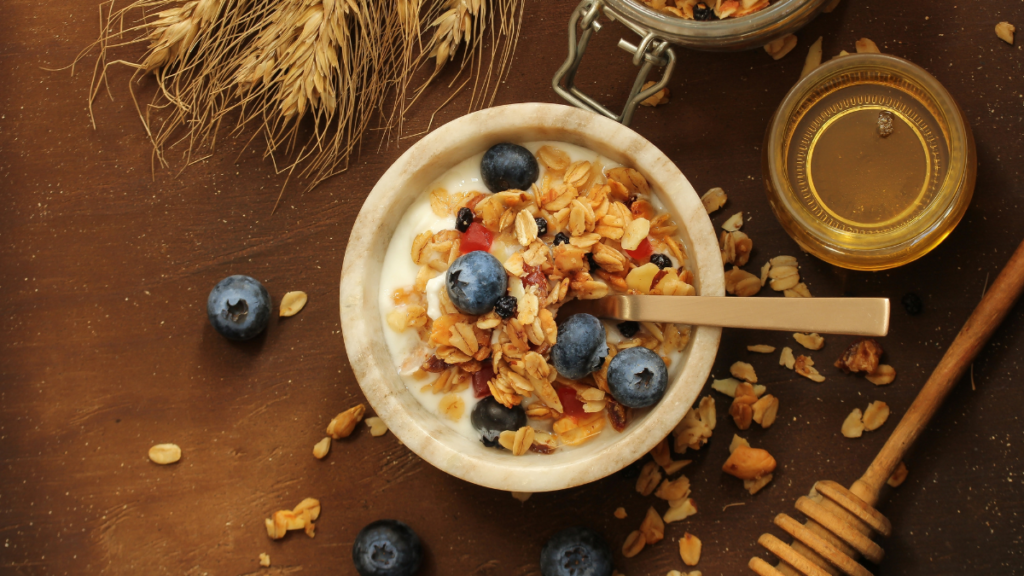
8. Milk and Yogurt (1.1 mcg per 1 cup serving): Dairy products like milk and yogurt are naturally good sources of B12, making them a convenient option for boosting intake. Choose low-fat or fat-free varieties for a healthier option.
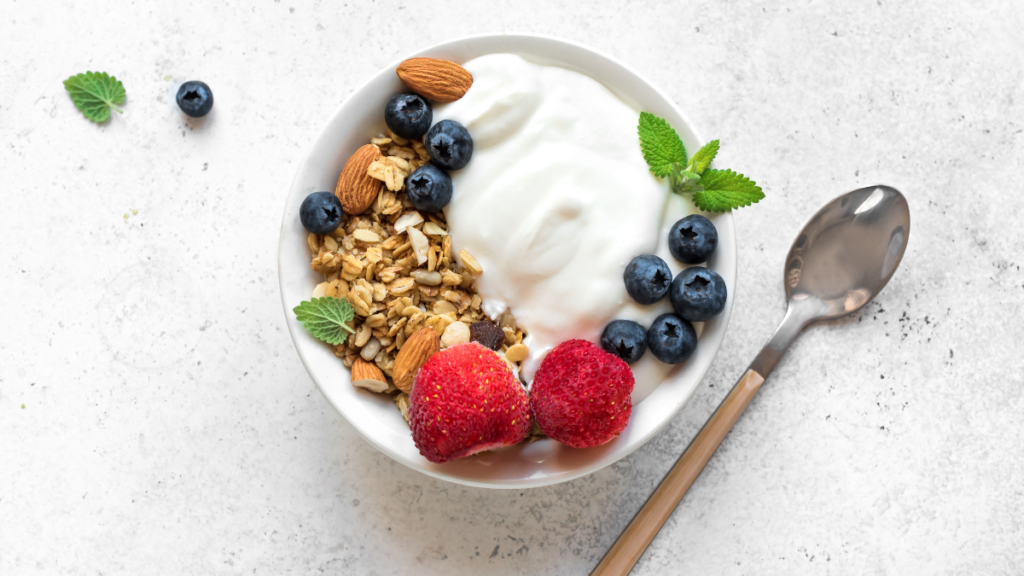
9. Cheese (1.5 mcg per 1 oz serving): Cheddar, Swiss, and Parmesan cheeses offer a delightful way to incorporate B12 into your diet. Enjoy them grated on salads, melted in sandwiches, or savored on their own.
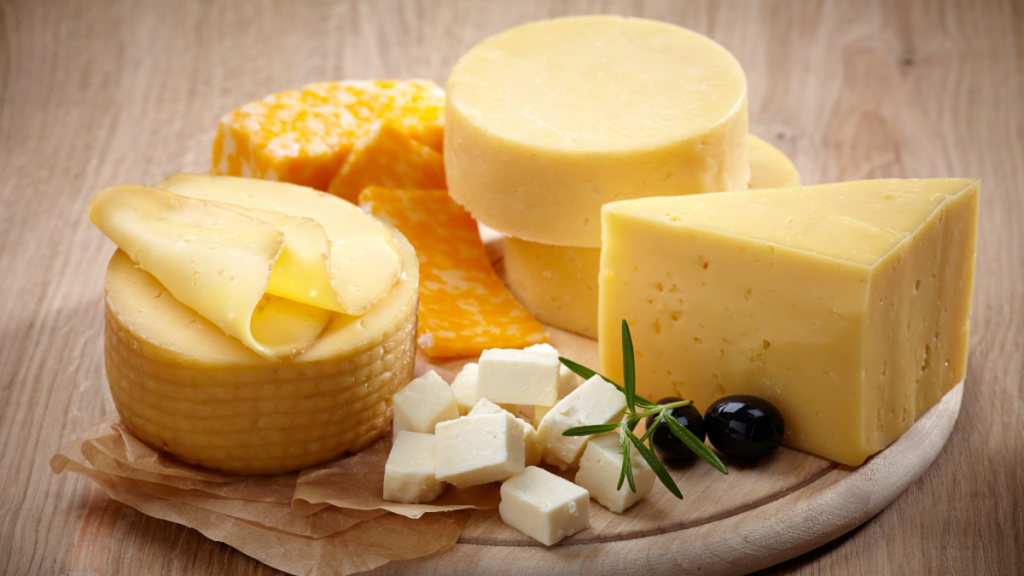
10. Tempeh (2.6 mcg per 3 oz serving): This fermented soy product is a plant-based powerhouse rich in B12, protein, and fiber. Crumble it and saute it for a meaty texture in stir-fries or salads.
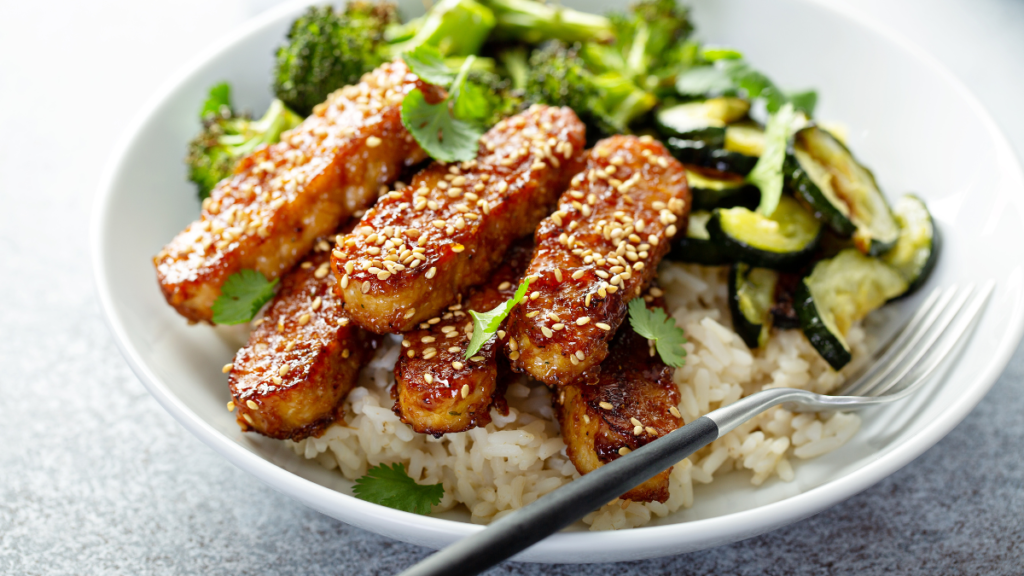
Creative Recipes and Meal Ideas
Now that you’re armed with a B12 bounty, let’s get creative in the kitchen! Here are some delicious recipes featuring our top B12 superstars:
- Breakfast Scramble with Smoked Salmon and Spinach: This protein-packed breakfast combines the B12 goodness of smoked salmon with iron-rich spinach and creamy scrambled eggs or omelet.
- Lemony Lentil Soup with Nutritional Yeast: This hearty soup is a vegetarian delight. Lentils provide B12 and fiber, while nutritional yeast adds a cheesy flavor and a B12 boost.
- Sardine Pasta Puttanesca: Don’t be intimidated by sardines! This flavorful pasta dish incorporates the B12-rich fish alongside olives, capers, and tomatoes for a taste explosion.
- Beef Liver Tacos with Guacamole: Sauteed liver might sound daunting, but wrapped in a warm tortilla with fresh guacamole and salsa, it becomes a surprisingly delicious and B12-packed adventure.
- Tempeh Burgers with Vegan Cheese: These satisfying burgers offer a plant-based alternative with the B12 benefits of tempeh. Top them with your favorite vegan cheese and veggies for a complete meal.
Meal Planning Tips
- Start your day with B12-rich options like fortified cereals, eggs, or a yogurt parfait with berries and nuts.
- Include B12 throughout the day with snacks like cheese slices, fortified nut butter, or a sprinkle of nutritional yeast on popcorn.
- Plan dinners around B12 powerhouses like baked salmon, lentil soup, or tempeh stir-fry.
- Don’t forget leftovers! Pack them for lunch to ensure consistent B12 intake throughout the day.
Tips for Maximizing Vitamin B12 Absorption
While dietary B12 is ideal, certain factors can affect absorption. Here are some tips to maximize your B12 benefit:
- Pair B12 with Vitamin C: Vitamin C helps with B12 absorption, so include citrus fruits, tomatoes, and bell peppers alongside your B12-rich meals.
- Limit Alcohol Consumption: Excessive alcohol intake can interfere with B12 absorption.
- Maintain a Healthy Gut Microbiota: A healthy gut microbiome is crucial for B12 absorption. Consider incorporating fermented foods like yogurt, kimchi, and kombucha into your diet.
Vitamin B12 Supplementation
For individuals at high risk of deficiency, such as strict vegetarians, vegans, or those with certain medical conditions, B12 supplements might be necessary. Consult your doctor to determine the best course of action for your individual needs.
Common Myths and Misconceptions
Myth: Vitamin B12 is only found in animal products, making it impossible for vegetarians and vegans to meet their needs.
Busted: While animal sources are rich in B12, plant-based options like fortified cereals, nutritional yeast, and tempeh can contribute significantly to your daily intake. Additionally, B12 supplements are readily available for vegans who struggle to meet their B12 needs through diet alone.
Myth: High doses of Vitamin B12 are beneficial for everyone.
Busted: While B12 deficiency can lead to health problems, excessive intake is generally not harmful but also not necessary. Most healthy adults can meet their B12 needs through a balanced diet.
Conclusion
Vitamin B12 is a vital nutrient for maintaining vibrant health. By incorporating B12-rich foods into your diet and adopting healthy habits to maximize absorption, you can ensure your body has the tools it needs to thrive.
Remember, a balanced and varied diet is key. Don’t hesitate to consult a healthcare professional for personalized guidance on B12 intake and deficiency testing if you have any concerns.
With a little planning and creativity, you can transform your meals into B12 powerhouses, fueling your body and mind for optimal health and well-being. So, embrace the B12 bounty and embark on a delicious journey towards a healthier, happier you!
